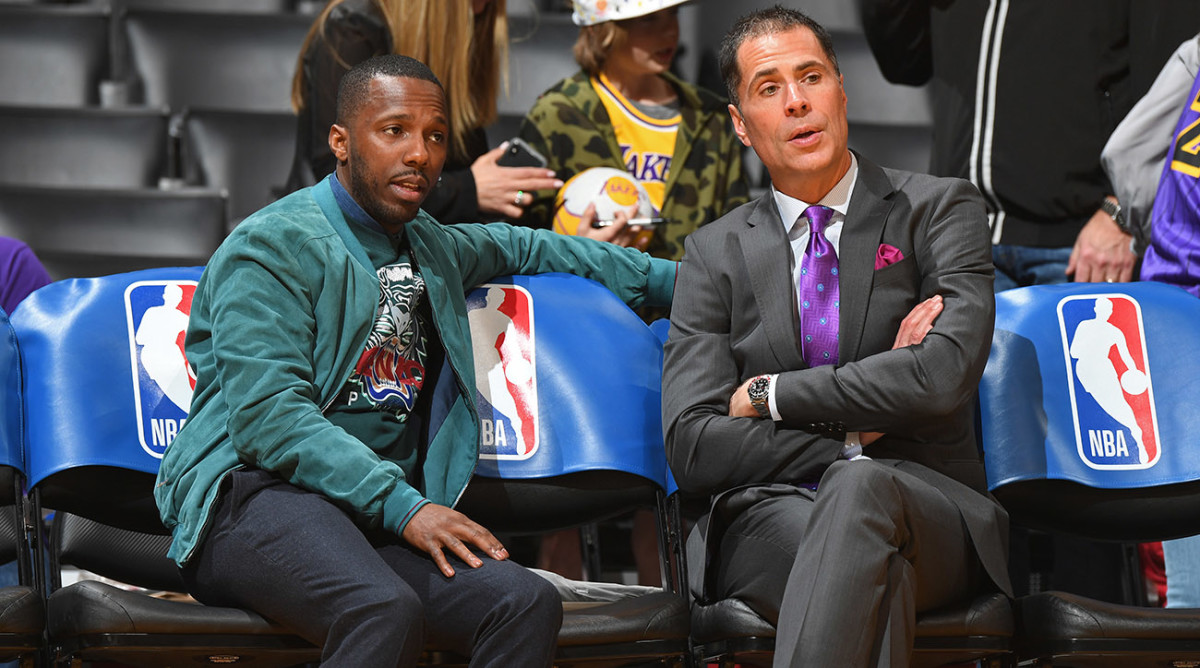New 'Rich Paul Rule' Targeted at Agents Is NCAA's Latest Blunder

If colleges awarded bachelor’s degrees in Arrogance and Self-Delusion, NCAA bigwigs would have an easy double major, and then they would be qualified to advise the players they claim to love so deeply.
The ancient monolith is letting basketball players who test the NBA draft talk to agents. But not just any agents. According to ESPN, those agents must have a bachelor's degree, National Basketball Players’ Association certification for at least three consecutive years, professional liability insurance and completion of an in-person exam taken at the NCAA office in Indianapolis in early November.
All the agents should really need is NBPA certification; if the players’ union trusts an agent, the NCAA should, too. But the bachelor’s degree requirement is what stops you. It is already becoming known as the “Rich Paul rule” because Paul, who represents LeBron James, Anthony Davis, Ben Simmons and other high-profile players, does not own a bachelor’s degree.
If this looks like a ridiculous decision directed at Paul, guess what? It’s much worse than that.
It’s just part of the NCAA’s ongoing sham that all of college sports is really about getting an education, and getting an education means getting a degree.
Zion Williamson and R.J. Barrett were never going to graduate from Duke—at least, not in four years. They knew this. Mike Krzyzewski knew this. Everybody at Duke knew it. You might like it and you might not, but you know what? Spending a year on a college campus, playing ball for a Hall of Famer, and then making millions of dollars to do what you love is really not so terrible. We have bigger problems as a society than that. You may have noticed.
But the NCAA is uncomfortable with that. The NCAA needs to keep selling the idea that its highest-profile teams and coaches are really in this racket to educate. The NCAA is doing this mostly for business reasons at this point. It fears the financial ramifications of society treating its business like a business.

So: Art Briles? Educator. Hugh Freeze? Educator. Those assistant coaches who allegedly funneled money to agents so they could sign players and win games and keep their jobs? The coaches who took bribes to get rich kids into school? They were supposed to be educators!
And now agents are supposed to value education, too. And if they don’t have a degree, then they aren’t worthy of mentoring these student-athletes.
It is nonsense, all of it. Players hire Paul because they think he will operate in their best interests. They don’t care if he got four credits for The Role of Oil Painting in 16th Century Politics, and they don’t care because it doesn’t matter.
The NCAA can’t take that. The NCAA clings to the idea that the universities that comprise it are the only conduit toward a successful, fruitful life. The NCAA desperately wants you to believe that even its most famous teams are only helping the cause of education.
If the coaches stray from that cause, they are corrupt. And now, if agents don’t have bachelor’s degrees, they must keep their distance, because they might be corrupt, too.
The truth, which is so blindingly obvious by now that it’s amazing it even needs to be said, is that coaches do not get paid millions of dollars to educate. They are far more likely to get fired for losing games than for terrible graduation rates. Almost all the pressure they feel—from the schools that employ them—is to win.
That is the world the NCAA has created. That is the world the schools are scared to change. And as long as they operate like this—valuing wins and dollars over everything else—that’s how their employees will operate, too.
Rich Paul is a loud, opinionated bug in their system. He is conducting business more honestly than the NCAA, because he makes it very clear to everybody: his job is helping players get what they want. He does not accept on faith that going to college for a year is better than working out and preparing for the draft. He does not insist that players should spend their late teens in a classroom or their 20s trying to make one city happy. That may be best for some. Paul does not pretend it is best for everybody.
There is a long list of agents who have hoodwinked their own clients—who have stolen, directly or indirectly, or cashed in on side deals, or ignored their own conflicts of interests. A lot of them had college degrees. If the NBPA thinks Rich Paul (who doesn’t have a college degree) can represent Anthony Davis (who was never going to stay at Kentucky long enough to graduate), then he can represent other players, too.
The NCAA has made more damaging decisions than this, but it’s hard to remember one so self-defeating. Remember: this all stems from the organization letting players have professional advisors in the first place. That is progress, or it should be. But the NCAA did what the NCAA so often does: it took one step forward, then two steps back.
